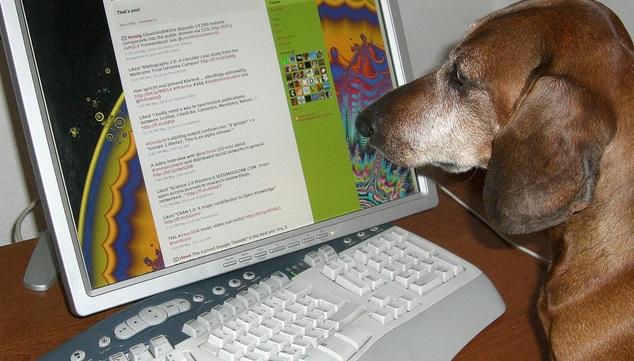The Internet may be hurting all of us
Entrepreneur and author Andrew Keen argues that the free model of the Internet isn’t really free at all.
There's a lot to love about the Internet: You don't need to be on campus to go to college; long-lost connections are just a tweet or post away; and whether you need groceries or a cab, there's an app for that.
But the promise of the Internet is far removed from its reality, argues Andrew Keen, author of "The Internet Is Not The Answer." Far from creating equality, he says, it has birthed a new elite.
“My argument is that the ideology of Silicon Valley is improving the world, but the truth is, it’s improving the bank balances and cultural power of a tiny group of techno-plutocrats in Silicon Valley.”
Keen views this digital revolution as similar, in many ways, to the Industrial Revolution. The early 19th century promised manufactured goods that the common man could attain. It lived up to that promise, but along the way, created morally reprehensible working conditions, led to phenomenal fortunes, and resulted in untold environmental devastation.
Keen is quick to point out there’s a difference between robber barons and, in his words, techno-plutocrats.
“This new elite, this Silicon Valley elite, is more confident in their moral virtue. I think the 19th century entrepreneurs had a sense of their virtue, but nothing quite as arrogant as people like Mark Zuckerberg and Larry Page of Google who think they can both make enormous fortunes and make the world a better place. You can do one of those, but not both," he argues.
Now, because the digital revolution has impacted all of our daily lives (and as you’re reading this post, I’ll assume the Internet is a factor in yours), the social consequences of our personal digital existence can be fairly easy to parse. A study by University of Michigan psychologist Ethan Kross found that, on the whole, spending time on Facebook makes us lonelier and less happy. Anecdotally, as someone who’s seen pictures of their old friend’s glamorous vacation in New Zealand, this holds up.
But Keen is also focused on the broader economic and cultural impacts of the digital revolution. He argues that while the Internet gives ordinary people publishing platforms, it actually makes it much harder to earn a living as a creative artist (some like Cory Doctorow disagree), making what's suppsoed to be a free model not so free at all.
“The truth is, when we’re using these free products, we ourselves are being transformed into the product. We are being mined for our data by these companies, who are essentially selling this data to advertisers. The free model then, of companies like Google and Facebook, isn’t really free, we’re the ones who are paying a tremendous cost. A cost above all else, of our privacy, of our secrecy, of our mystery as human beings.”
And tech companies have a lot of data on you. Google recently made all your searches available for you to peruse, and if you’d like to get slightly worried about how many of your hopes, dreams, and darkest desires Google could sell to advertisers, just check out your own Google history.
Data-mining, the sharing economy, and our increased psychological isolation — Keen is worried about all of it. He feels that the digital revolution, like the Industrial Revolution, can’t really be stopped; but it’s important to find a way to make the online world more humane and people-focused. The Internet is already part of the way we live now, and that seems unlikely to change. After all, you did just read this.
This story was adapted from an interview on the PRI radio show Innovation Hub.
